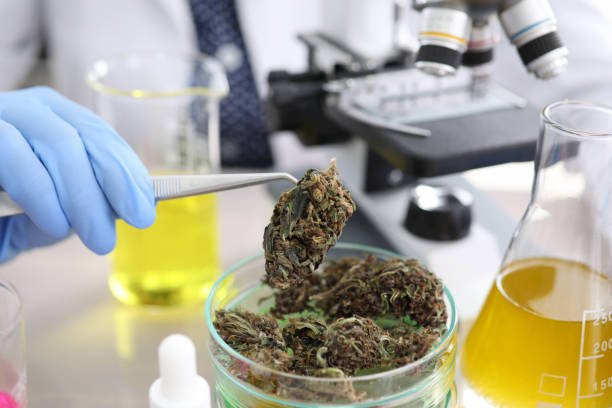
An Examination of Consumer Attitudes and Beliefs Related to the Risks of THCO
Information is critical to enabling this process which is why cannabis
research ought to be concerned with how we can reduce harms associated with experimentation and use in the face of limited evidence. Researchers must work to establish communication channels before during and after research programs in order to maintain ethical obligations to community stakeholders

Noid Therapy: A Survey Exploration of THCO Medical Use
THCO has similar perceived medical benefits to botanical cannabinoids found in cannabis, and consumers self-report use strategies that mirror those for THC. Limitations with these results derive from the nature of online survey research compounded by the dynamic nature of THCO products and markets.

Perspectives on CBD Pharmacology
Throughout the conversation, it became evident that the science of cannabinoid pharmacology has progressed rapidly since the advent of hemp and cannabis products in the US; however, our understanding is still lagging. We know that cannabis products work and have theories on where we can apply our current understanding to improve medicine but have a long way to go before realizing the full potential of things like the entourage effect. Despite new developments in drug delivery systems and biopharmaceuticals, the industry must still come together to educate the public on the basics of cannabis and derived products like CBD to continue this momentum. While regulations will eventually catch up and guidance will appear, the impetus is on physicians, manufacturers, and consumers to create clarity in the status quo.

Examing the Safety and Efficacy of CBD
As regulatory gears continue to churn and the market continues to grow, it is important to look toward the future. Questions of drug interactions, negative side effects, and treatment complications are important but the reality is that we are far past a paradigm of cannabis that embraces the plant as anything but a worthwhile medicine.

Building Out Our Toolbox: Notes on Integrative Care with Cannabinoids and Opiods
Cannabinoid Based therapies like Medical Marijuana have been radically improving the lives of countless patients as cannabis laws and regulations continue to change.

Healing Mind, Body, and Spirit: Exploring the Role of Cannabis in Combating Opiate Abuse
The integrative potential of cannabinoid-based therapies remains vast, whether it is supplementation or substitution for existing treatment modalities cannabis can be instrumental in improving outcomes.

All for One and One for All: A Discussion on Integrating Cannabinoids in Medical Care
Opioid and Cannabinoid treatments are both longstanding, well tolerated approaches to treating a wide array of deficiets and ailments.

Cannabimimetic Plants Throughout Earth’s Flora
This article provides a summary of existing cannabimimetic plants to guide industry stakeholders in assessing research priorities for future cannabinoid development. The industry used to rely on an outdated idea of the lock-and-key mechanism to explain the ECS; however, understanding the endocannabinoid system and the array of natural modulators may be the keys to the future for our industry.

Transcending the Boundaries of Current Cannabis Products
The Plant of 1,001 Molecules [6] is increasingly refined into the Plant of One Particular Chemical (e.g., isolates), and even when not, these products still represent an upper bound on the amount of the plant we can experience.

Home Sweet (Fruity, Floral, Earthy) Home
The nose knows. It knows where it comes from, what has healed it in the past, and what is needed in the present. It’s safe to deduce that, if it worked for your ancestors, it may work for you currently as their cellular descendant.
![New Kinds of [Hash]tags Research Poster](https://images.squarespace-cdn.com/content/v1/62f497d83779da7ba6c591e5/1660449779440-DKDH2JADUKOPSW49S2SU/New+Kinds+of+Hashtags+Poster+Final.jpg)
New Kinds of [Hash]tags Research Poster
The rise of distinct subcultures of cannabinoid users and the proliferation of new psychoactive substances derived from the hemp plant reflects a dynamic relationship between the development of new cannabis products and the growth of the markets for these goods.

R/THCO Netnography Poster
The availability of bio-synthetic cannabinoids (meaning synthetic cannabinoids derived from phytocannabinoids through processes such as isomerization, including most notably Delta-8 and THC-O) is of growing interest to regulators across the country.

We’ve Always Been High Contextualizing the Entheogenic History of Cannabis
Cannabis consumption, whether entheogenic in purpose or not, is better realized in a context that embraces the diversity of more personal and intimate relationships with the plant and its derivative products, from nutritional to spiritual, or recreational to medical.
![Right Under Our Nose: Getting Back to the Root [Mass] of Cannabis](https://images.squarespace-cdn.com/content/v1/62f497d83779da7ba6c591e5/1676092888639-2WJF05UF2Z06SH99RXVE/Hemp+Roots.jpeg)
Right Under Our Nose: Getting Back to the Root [Mass] of Cannabis
It’s beyond certain that we have bred out of existence certain trace compounds whose benefits will now never be fully understood, and whose loss impacts our ability to ensure the perpetual development of genetically robust cultivars.

Innovating Individuality: How Novel Cannabis Formulations Are Changing Industry Strategies
The cannabis industry is no longer just about THC, or even CBD. As more of the plant’s secrets are unveiled, the interest in minor cannabinoids and specific terpene combinations is becoming more meaningful. At Concentration 2019, a panel of some of the leading minds in the industry shared personal experiences and observations to discuss this growing interest in the field.

Terpenes and Teas: Exploring the Relationship Between Cannabinoids and Catechins
For many, the aroma of a cup of tea invokes a cascade of pleasant images and memories creating a sense of comfort. For those without these experiences, though, the aromatherapy aspect of tea is still an added benefit of the beverage.

Spinning Around in Circles: Rediscovering THC-O-Acetate and Cannabinoid Stereochemistry
For those less familiar with THC-O-Acetate, it is a “metabolic prodrug” of THC, meaning it is less susceptible to the high first-pass metabolism that THC suffers from. This substance is psychoactive, much like THC